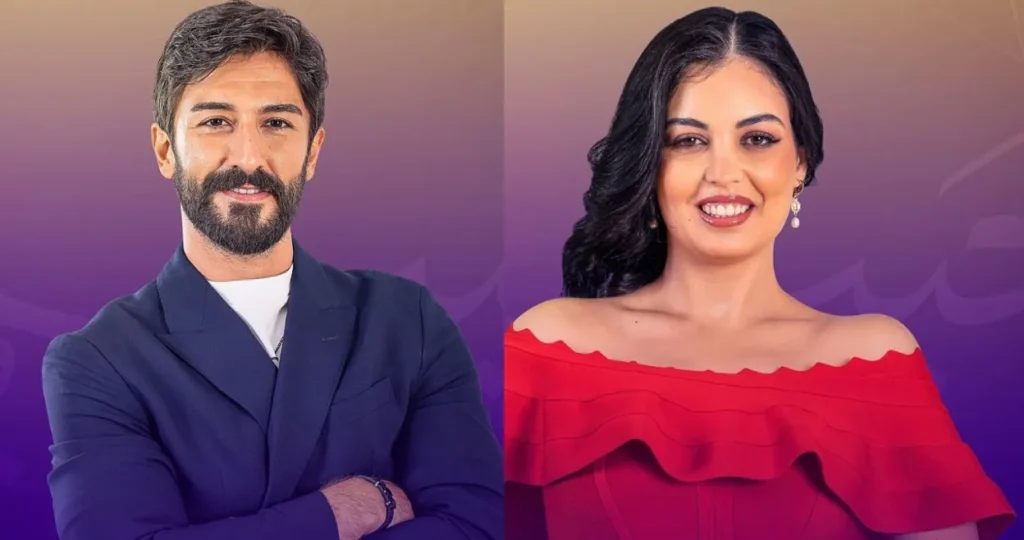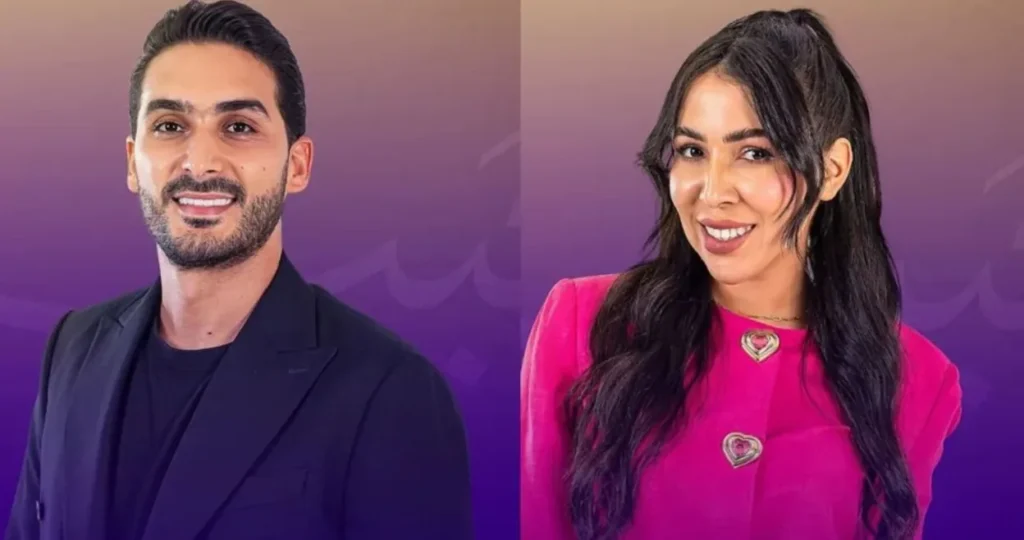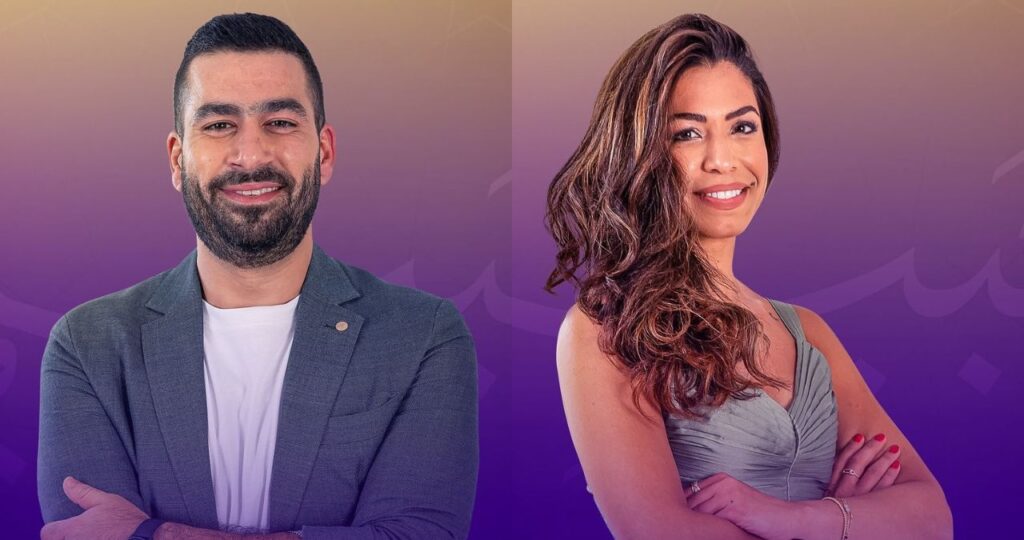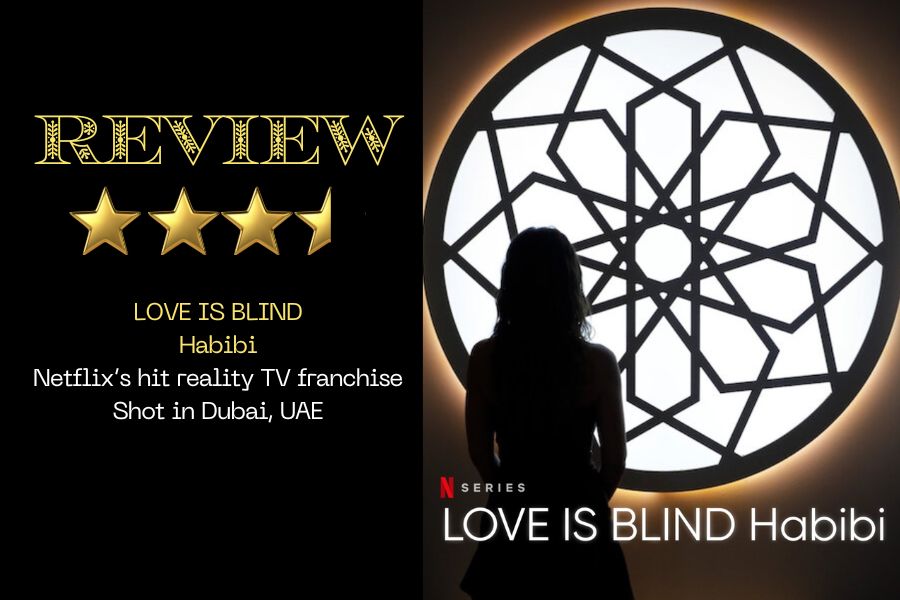October 17, 2024: Netflix’s hit reality TV franchise Love is Blind has introduced a new Middle Eastern twist with its latest series Love is Blind: Habibi. In this edition, 20 eligible Arabs set out on a journey to find love, but there’s a catch—they do so without ever seeing each other. True to the show’s concept, participants meet in “pods” where they can only hear one another, and, if they make a strong connection, they propose before meeting face-to-face.
The contestants for this series are mostly well-known social media influencers, models, businesspeople, and working professionals from across the Middle East and the diaspora. This season, 6 couples emerged from the pods, professing love and proposing marriage without ever laying eyes on one another.
The couples that emerged include:
Ammar Zam (Dentist) & Karma Ben Messaoud (Business Owner)

Khatab Hindi (DJ & Music Producer) & Asma Sami (Regional Marketer)

Chafic Yactine (Entrepreneur) & Dounia Allbrahim (Content Creator)

Hajar Asli (Fashion Entrepreneur) & Mohamed Nasrollah (Simo) (Firm Owner)

Mohamed Gahed (Freelance Real Estate Agent) & Nour El Hajj (Model & Content Creator)

Mohammed AlKiswani (Marketing & Brand Manager) & Safa Al Juboori (Financial Manager)

Of these couples, only Mohammed and Safa ended up tying the knot.
The series is set against the glamorous backdrop of Dubai, with no shortage of luxury, opulence, and extravagant lifestyles. The show flaunts high fashion, designer outfits, and luxury surroundings, showcasing the wealth and excess that many of the participants enjoy. Despite the glossy exterior, the show manages to peel back the layers and offer a glimpse into the traditional values still deeply embedded in Middle Eastern society.
While discussions in the pods often revolved around topics like fitness, designer brands, and appearances, many participants were in search of something deeper—long-lasting love, security, and mutual respect. However, as the couples left the pods and entered the real world, the contrast between modern romance and traditional expectations became apparent.
The men, for the most part, expected the women to compromise their independence and professional lives in favor of security, family, and a more traditional role. The series also highlighted stark differences in the benchmarks for respect between the men and women. Several male contestants harshly criticised and demeaned their partners, both in private and in front of others. For instance, Ammar ended his engagement with Karma over her love of dancing, but she stood her ground and chose her independence over the relationship.
The tumultuous relationship between Hajar and Simo also showcased this disparity. Simo frequently criticized and ridiculed Hajar throughout the show, emphasising a lack of respect for his partner’s autonomy and opinions.
On the other hand, the women, too, placed emphasis on materialism and appearances, with contestants like Nour and Asma showcasing a superficial attitude towards their fiancés, often prioritising luxury over emotional connection.
In the end, Love is Blind: Habibi offers a fascinating glimpse into the balance between traditional values and modern romance in the Middle East. It’s a fun watch, but one that also raises important questions about independence, equality, and respect in relationships.
While the show is set in a distinctly different cultural landscape, it serves as a reminder that, in the end, the true challenge of love is not about wealth or status but about mutual respect and partnership.

